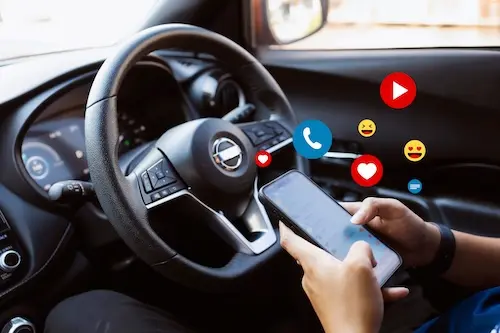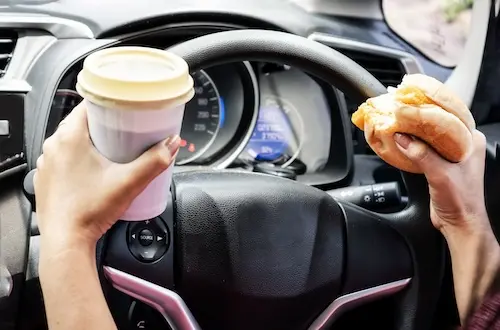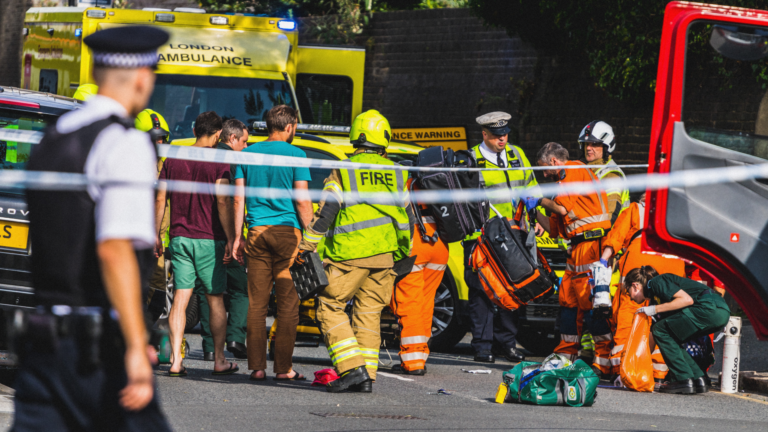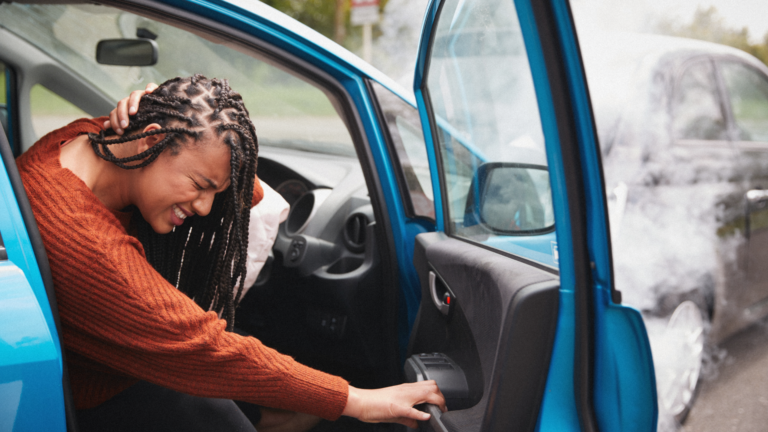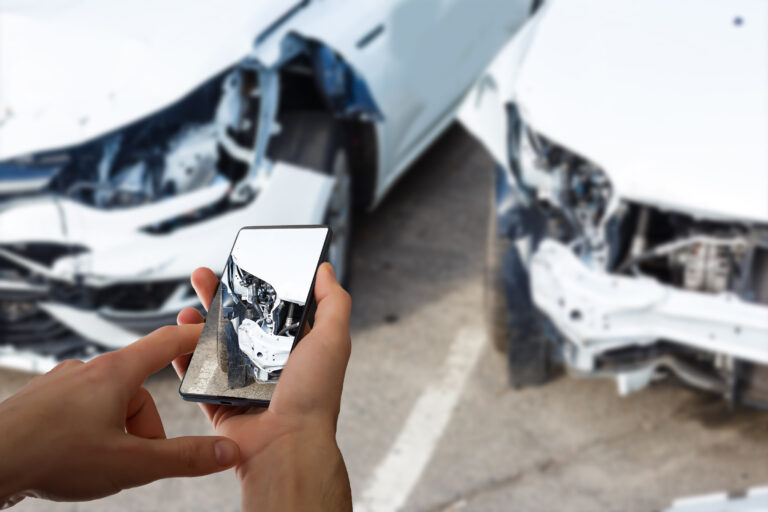Why Distracted Driving Matters
Every day across America, drivers face deadly consequences from preventable behaviors behind the wheel. One of the most pressing threats is distracted driving, a leading contributing factor in thousands of motor vehicle crashes each year. According to the National Highway Traffic Safety Administration (NHTSA), taking your eyes off the road for just five seconds while traveling at 55 mph is like driving the length of an entire football field with your eyes closed.
When an accident occurs, liability often depends on whether distraction played a role. Victims may need an experienced distracted driving accident lawyer to prove negligence and recover compensation. As The Super Lawyer, we believe raising awareness of distracted driving laws, risks, and prevention strategies is essential to saving lives.
Understanding Distracted Driving
Distracted driving is any activity that diverts a driver’s attention from the road ahead and safe vehicle operation. Safety experts categorize these distractions into three types:
- Visual distractions – Taking your eyes off the road. Example: checking a mobile phone or GPS.
- Manual distractions – Taking your hands off the wheel. Example: eating, drinking, or reaching for a wireless device.
- Cognitive distractions – Taking your mind off driving. Example: daydreaming or engaging in intense talking.
While many states have enacted hands-free laws and bans on text messaging, distractions still infiltrate daily driving. From novice drivers scrolling social media to school bus drivers engaging in conversation, the risks are widespread.
For young drivers especially, the temptation to multitask while driving creates an alarming distraction. Even a single non-driving activity, like changing a playlist, can trigger a crash.
Distracted Driving Laws and State Liability
The rise in distracted driving crashes prompted lawmakers to tighten state laws across the U.S.
- Hand-held phone bans: Prohibit the use of a hand-held phone while driving.
- Hands-free laws: Allow only hands-free devices, though these can still cause cognitive distractions.
- Text messaging bans: Outlaw texting behind the wheel in many states.
Certain jurisdictions, including the Northern Mariana Islands, enforce some of the strictest distracted driving laws.
When police investigate crashes, they often document distraction in police crash report forms. If a driver is cited for breaking state laws, this becomes a powerful piece of evidence in determining liability. Courts frequently view such violations as proof of negligence.
Distracted Drivers and Car Accident Liability
In personal injury law, liability often comes down to negligence. A distracted driver who fails to give full attention to the road ahead may be deemed negligent if their distraction caused the crash.
Examples include:
- Failing to notice a stop sign while checking a cellphone.
- Rear-ending another vehicle because of text messaging.
- Ignoring company policy prohibiting phone use while driving for work.
In such cases, distracted behavior is a clear contributing factor in assigning fault. Insurers and courts use police crash report forms, phone records, and witness testimony to prove a driver was distracted. Employers may also face liability if an employee was using a wireless device for work purposes behind the wheel.
Common Sources of Driver Distraction
The most alarming distraction on the road today is texting while driving. This single action combines all three categories: visual, manual, and cognitive.
But texting isn’t the only potential distraction. Common examples include:
- Mobile phone and cellphone use: talking, scrolling, or notifications.
- Electronic devices: GPS units, tablets, or dashboard touchscreens.
- Eating and drinking: classic manual distractions.
- Passengers: friend driving situations where conversation diverts attention.
- Other non-driving activity: grooming, adjusting music, or reaching for items.
Even hands-free devices—once promoted as safer—can be risky. While your hands remain on the wheel, your brain still struggles to focus when engaged in talking.
The Deadly Consequences of Distracted Driving
The National Safety Council warns that many crashes stem directly from distraction. The deadly consequences include:
- Increased crash severity compared to other risky driving behaviors.
- Higher fatality rates among young drivers and novice drivers.
- Distraction related crashes where innocent passengers, pedestrians, or other motorists pay the price.
Studies show that using a mobile phone while driving reduces reaction times as much as being legally drunk. Like drinking, distraction impairs judgment and slows response to hazards.
One glance away from the road ahead—even for the time it takes to read a text message—can lead to tragedy.
Preventing and Reducing Distracted Driving
While the statistics are grim, there are clear steps to reduce distracted driving and promote safe driving.
National Efforts
Organizations like the National Highway Traffic Safety Administration and National Safety Council spearhead campaigns such as Distraction Free Driving Month. Their goal is to end distracted driving and save lives through awareness.
Hands-Free Isn’t Always Safe
Although hands-free laws exist, using a hands-free device still poses cognitive distractions. Drivers must understand that just because they comply with the law doesn’t mean they are truly focused.
Employer Policies
Many companies adopt strict company policies banning phone use or texting behind the wheel. These rules hold employees accountable and reduce employer liability.
Individual Commitments
Drivers can make small changes with big impacts:
- Put away the cellphone or switch to “Do Not Disturb” mode.
- Refuse to drive distracted, even when tempted.
- Encourage passengers and friends to help maintain distraction free driving habits.
- Remember that refusing a single non-driving activity can prevent many crashes.
Ultimately, the only way to drive safely is to keep full attention on the road ahead.
Frequently Asked Questions About Distracted Driving and Car Accident Claims
What should I do immediately after a distracted driving accident?
If you’ve been involved in a distracted driving crash, your first priority is medical attention. Once safe, document the scene, gather witness information, and request a copy of the police crash report form. Evidence of driver distraction—such as cell phone use, text messaging records, or violation of hands-free laws—can make a critical difference in proving liability in motor vehicle crashes. Contacting a distracted driving accident lawyer as soon as possible ensures your rights are protected.
How can I prove a driver was distracted at the time of the crash?
Proving distracted driving often requires a combination of evidence, including mobile phone records, eyewitness statements, surveillance footage, and the officer’s notes in police crash report forms. Distracted drivers may also admit to a non-driving activity such as eating, talking, or using a wireless device behind the wheel. A skilled attorney can subpoena phone records, analyze traffic camera data, and demonstrate that the driver’s attention was diverted from the road ahead, which is a contributing factor in many crashes.
Are hands-free devices safe, and can they still cause liability issues?
Many states allow hands-free devices under hands-free laws, but research by the National Safety Council shows that hands-free is not risk-free. Even when a driver keeps both hands on the wheel, cognitive distractions from talking on a phone can reduce reaction time and increase crash risk. If an accident occurs, the distracted driver may still be held liable, as the law requires full attention to safe driving regardless of device type.
What types of distractions are most alarming in car accident claims?
Text messaging remains the most alarming distraction, as it combines visual distractions, manual distractions, and cognitive distractions in one act. Other high-risk behaviors include eating or drinking, adjusting electronic devices, and friend driving scenarios where conversation diverts attention. For novice drivers, young drivers, and school bus drivers, these risky driving behaviors are especially dangerous and often highlighted in national highway traffic safety data.
How do state laws impact my ability to recover damages?
Distracted driving laws vary across states and territories, including the Northern Mariana Islands. Violating a hand-held phone ban or texting prohibition is often considered negligence per se, meaning the law itself establishes the driver’s liability. This can strengthen your case by showing that the distracted driver broke a state law, which directly caused the crash. Your attorney will review applicable state laws to determine how they impact liability, compensation, and potential punitive damages.
What compensation can I recover in a distraction related crash?
Victims of distraction related crashes may recover compensation for medical bills, lost wages, property damage, and pain and suffering. In severe cases involving deadly consequences, families may pursue wrongful death claims. Insurance companies often minimize the role of driver distraction, but evidence showing that a non-driving activity diverted attention from the road ahead can increase the value of your case. A distracted driving accident lawyer will fight to ensure you receive full and fair compensation.
How can I reduce the risk of driving distracted myself?
The best way to drive safely is to commit to distraction free driving. Put away your cellphone, silence notifications, avoid texting, and refuse to engage in non-driving activities behind the wheel. If you must use navigation or music, set it up before you drive. Employers should adopt company policy guidelines to limit phone use for employees. By practicing safe driving, following state laws, and keeping your full attention on the task of driving, you can help reduce distracted driving and save lives.
Take Control of Your Case: Don’t Let Distracted Driving Derail Your Future
If you or a loved one has been injured in a distracted driving crash, you deserve more than just answers—you deserve justice. The insurance companies will work hard to minimize your claim, but you don’t have to face them alone.
👉 Contact The Super Lawyer today 404-574-4308 to speak with an experienced distracted driving accident lawyer who will fight to protect your rights, hold negligent drivers accountable, and help you secure the compensation you need to move forward.
Your recovery starts here—schedule your free consultation now.
